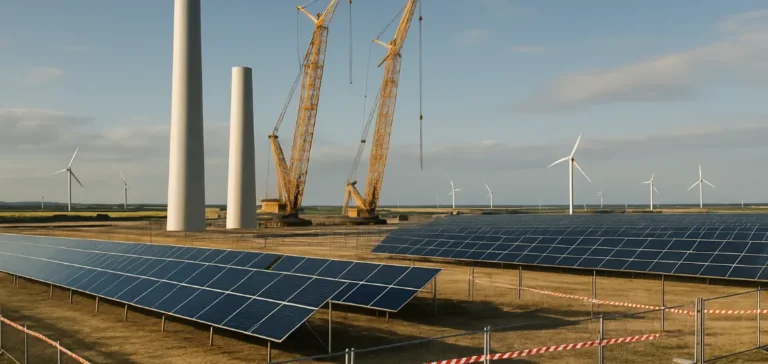The recent adoption by the French National Assembly of an immediate moratorium halting all new installations of wind turbines and photovoltaic panels has sparked strong governmental reactions. Minister of Ecological Transition Agnès Pannier-Runacher strongly criticized this measure during the political program Dimanche en politique, broadcast on the public channel France 3.
Risks for Energy Independence
According to the Minister, this moratorium, introduced by the parliamentary group Les Républicains (LR) with support from the National Rally (RN), could directly threaten around 150,000 jobs linked to renewable energies in France. She emphasized that France currently depends on foreign suppliers for its natural gas and oil, specifically mentioning Russia, the Middle East, and the United States. In this context, reducing renewable energy development could, in her view, further worsen this dependency.
Economic and Industrial Implications
France’s energy planning aims for a gradual reduction of fossil fuel usage, decreasing their share in the national energy mix from 60% currently to 42% by 2030. On this occasion, Pannier-Runacher highlighted the strategic importance of nuclear power combined with renewable energies to achieve these targets. According to the figures mentioned, the cost of offshore wind turbines is comparable to or lower than that of the existing nuclear fleet, making their development particularly sensitive from an industrial and economic perspective. The government therefore fears a direct impact on the purchasing power of French households.
Uncertain Legislative Outlook
The legislative proposal, initiated by LR Senator Daniel Gremillet, still needs to be voted on in first reading by the National Assembly, followed by a second reading scheduled for early July in the Senate, predominantly controlled by the political right. While the Minister did not explicitly mention withdrawing the bill, she nevertheless urged lawmakers, especially those from the LR group, to act responsibly.
The upcoming parliamentary debates will be closely watched by industrial players in the French energy sector, attentive to legislative decisions with immediate consequences for employment and ongoing industrial investments.






















